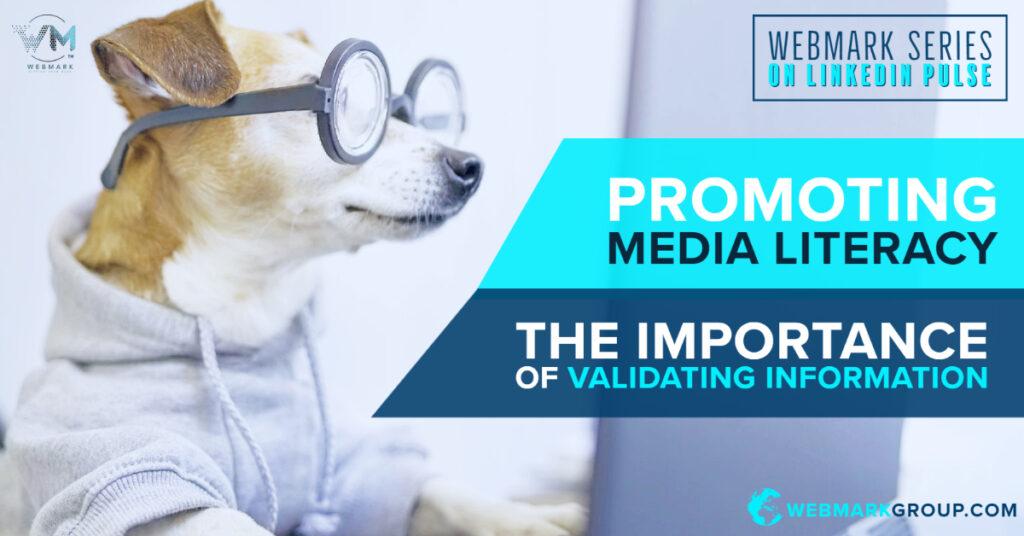In today’s digital landscape, where information spreads rapidly and misinformation runs rampant, the need for media literacy has never been more critical. As consumers of information, it is our responsibility to validate the accuracy and credibility of the content we encounter. In this blog post, we will explore the significance of validating information and promoting media literacy as essential skills for navigating the digital world.
Understand the concept of media literacy
Media literacy refers to the ability to access, evaluate, analyze, and critically interpret information and media content. It involves developing a discerning eye to differentiate between credible sources and misinformation. Embracing media literacy empowers individuals to make informed decisions and engage with information responsibly.
Assess the credibility of sources
When encountering information online, it is crucial to evaluate the credibility of the sources. Look for indicators such as author expertise, institutional affiliations, references, and citations. Consider the reputation and track record of the sources to ensure they are trustworthy and reliable.
Cross-reference information
Verifying information from multiple sources is key to ensuring its accuracy. Cross-referencing allows you to compare and contrast information from different perspectives, helping you gain a more comprehensive understanding of a given topic. Look for consensus among reputable sources before accepting information as valid.
Fact-checking tools and organizations
Utilize fact-checking tools and rely on reputable fact-checking organizations that specialize in debunking misinformation. Websites like Snopes, FactCheck.org, and PolitiFact provide valuable resources for fact-checking claims, rumors, and viral content. By consulting these resources, you can validate the information and prevent the spread of falsehoods.
Develop critical thinking skills
Cultivate critical thinking skills to analyze information objectively. Question the motives, biases, and intentions behind the content you encounter. Look for logical fallacies, inconsistencies, or gaps in the information provided. Critical thinking enables you to identify red flags and make sound judgments.
Promote responsible sharing
Before sharing information on social media or other platforms, take a moment to verify its accuracy. Be mindful of the potential consequences of sharing misinformation and its impact on individuals, communities, and society as a whole. Sharing responsibly helps combat the spread of false information and promotes a more informed online environment.
Educate others
Spread awareness about the importance of media literacy and encourage others to validate information. Share reliable resources, fact-checking tips, and strategies for evaluating content credibility. Engage in conversations about media literacy with friends, family, and colleagues to promote a culture of critical thinking and responsible information consumption.
Stay updated on media literacy resources
Media literacy is an ever-evolving field, and new resources and tools emerge regularly. Stay informed about the latest developments in media literacy education, online courses, workshops, and conferences. Continuously expand your knowledge and skills to adapt to the ever-changing digital landscape.
🗝️Takeaways
In an age where misinformation proliferates, validating information and promoting media literacy is vital for responsible digital citizenship. By developing critical thinking skills, assessing source credibility, fact-checking information, and sharing responsibly, we can combat the spread of misinformation and cultivate an environment that values accuracy, integrity and informed decision-making.
Embrace the power of media literacy and become an advocate for responsible information consumption. Together, we can foster a more informed, engaged, and empowered society.







